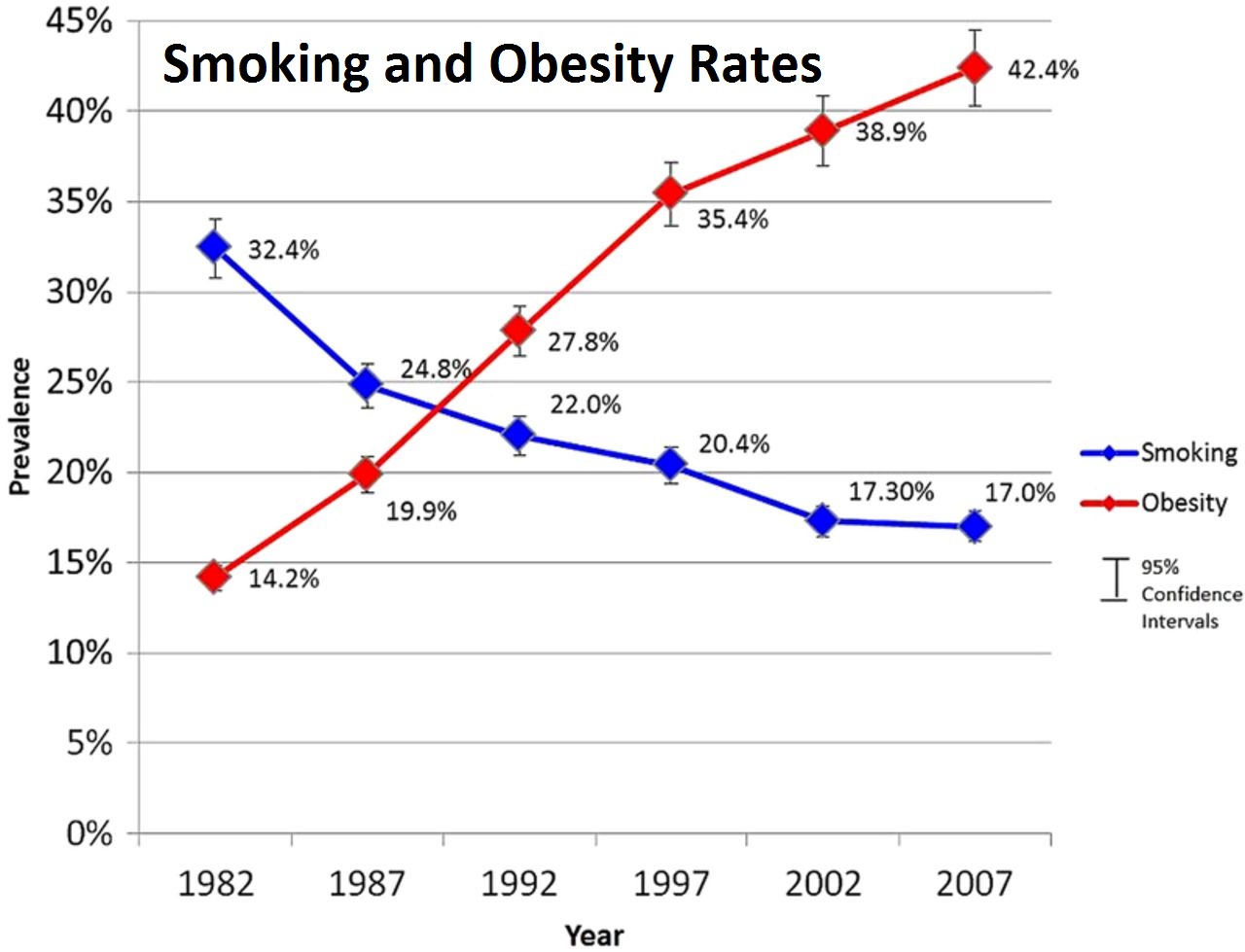Item #1: I edited and rewrote parts of my article on smoking and obesity, Bring Back Smoking to End Obesity.

Smoking, stimulants, and purgatives were widespread in the seventies and earlier as a way to mitigate weight gain. Food has replaced the role of smoking and amphetamines for simulation.
Item #2: Bitcoin keeps lagging Nvidia and leveraged tech ETFs, shown below. Whereas the Nasdaq 100 keeps making new highs, Bitcoin is still unable to stay above $70k.

Including inflation, Bitcoin is still among the worst performing assets over the past three years, down 10% on a real basis since May 2021. Only medium and long-duration bonds have done worse. Pretty pathetic for something widely touted as the ‘greatest investment of all time’. It was the greatest, but now you’d be better off with tech stocks as I am doing. Tech companies generate billions of dollars annually in free cashflow which goes to shareholders. A digital asset does not.
Item #3 The hikikomori in Asia: A life within four walls
I dunno why there is so much interest in this topic. Ironically, the desire to cut oneself off from the world only invites onlookers in curiosity. But America has this too. It’s homelessness. The drug abuse and mental illness makes it worse though. Unlike the comparably docile hikikomori, drug and alcohol use leads to erratic and aggressive behavior and makes accommodations and treatment impossible, hence homelessness. There will always be some subset of the population that is unable to integrate into mainstream society or whatever was the historical equivalent. During antiquity it was monks and hermits. During the Victorian era this role was filled by gypsies and vagabonds. Generations ago, they were hobos.
Item #4: I saw this going viral: Japan: The land that doesn’t need Ozempic.
Hint: They eat less food. That is all there is to it. Also, despite the outward appearance of wealth and the futurism of cities such as Tokyo, Japan is surprisingly poor on a per-capita basis, well-below other developed countries. This also makes it hard to obtain these pricey new weight-loss drugs:
By far, the biggest market for GLP-1 drugs is America, in part due to America’s huge wealth and discretionary income.
Japan being more physically active does not explain it. Otherwise, solving obesity in the US would be as simple as increasing activity, yet despite record gym attendance and the ’10k steps/day’ meme, Americans keep getting fatter. Moreover, it would also suggest that Americans whose jobs involve physical activity would be the thinnest, yet this is also false; in fact, it’s the opposite. The overweight blue-collar-worker stereotype is true for a reason. Road workers, construction workers, and plumbers are almost always overweight. By comparison, white-collar-workers tend to be much more variable in weight.
Item 5:
Joining the military still brings a guaranteed paycheck right out of high school or college, tax free housing stipend (young, single- get roommates and bank tax free pay), per diem when TDY (bankable), tax free pay if you’re in a combat zone, free healthcare (slow, but free),…
— NOVA Campaigns (@NoVA_Campaigns) May 13, 2024
Or just renounce your citizenship, reenter from the Southern border, and get all that stuff for free, plus top legal counsel.
Item 6:I saw this going viral: Not Lost in a Book, Why the “decline by 9” in kids pleasure reading is getting more pronounced, year after year.
“BookTok is imperfect,” said Karen Jensen, a youth librarian and a blogger for School Library Journal
The fact such a profession exists is either a sign of the collapse, or bring it on. Children’s books will always have a role or fill a niche due to parents and schools buying them. However, smartphones are a bigger threat to youth fiction. The rise of TV didn’t threaten book sales because young-adult programing was much more limited (e.g. only MTV and Nickelodeon) and dictated by what programming was served at the time by the network, but smartphones reverse the consumption of media from being top-down to bottom-up, in which the viewer, not the network, has control over what is shown.